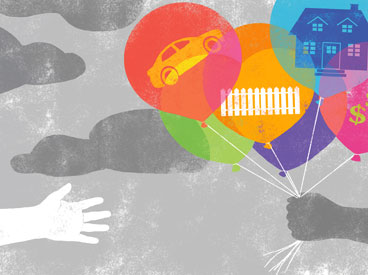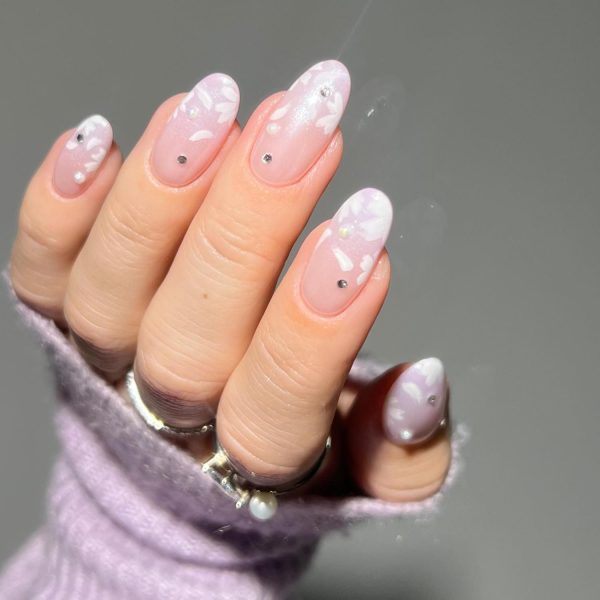American Nightmare

The American dream; having all the money one could ever want and always on the go. There seems to never be a moment of stasis when one’s lifestyle amounts to this never ending cycle of work, sleep, repeat. Some may see this pursuit of performance as a pleasure as long as they’re getting money, but how is it really affecting those performers? One would think that they’d be burnt out from the stresses and pressures of the go-go-go mentality that is idealized in America, but who wouldn’t want loads of money right? Even though in some cases money has been shown to have a positive impact on mental health, overall, the affluence in America has been shown to have more of a negative impact on mental health.
The U.S. has a growing problem with mental health amongst its citizens, and it’s commonly related to wealth and pressure. Throughout the U.S., it has been reported that there are over 40 million Americans who have a mental health condition, this is about 20 percent of adults. Another issue with mental health is that most people do not seek treatment or assistance for their mental health. It has been claimed that 56% of adults with mental illness do not obtain treatment for their mental health issues (Wang 439). This proves that the problem with mental health has taken over the lives of many Americans, yet there’s not many well-suited solutions to this growing problem. Many of these people with poor mental health are entrepreneurs. The lifestyle of an entrepreneur is very time consuming and tiring for the mental state. Even though entrepreneurs are sought out to be very successful beings, there are many pressures that come with being an entrepreneur. Some of these stressors include being able to handle and manage businesses and large amounts of money. Entrepreneurs are cut off from life’s simple pleasures because they are preoccupied with their business needs 24 hours a day, seven days a week. Even though they are physically present, they are frequently not in the same emotional or mental state as their loved ones (“How Does Wealth Affect Happiness”). While America continues striving to be known as one of the most economically advanced countries in the world, it’s entrepreneurs and providential people of the states are suffering with their mental state.
Awareness of the problem is required before a solution to the mental health problems in the United States can be developed. The typical ideal American life is frequently fast-paced, with individuals continually wanting to be the best and earn the most money, therefore mental health is often overlooked. With this constant craving to be bigger and more superior, Americans are left with the feeling of never amounting to enough. Physical health is strongly sought after, which leaves the mental part of health often left behind and understated (Yousif). It has been found that 9.5 percent of Americans did not have the health insurance that allowed them to see a counselor or psychiatrist for their mental needs (MacMillan). Along with the lack of health insurance covering mental well-being, there is also a huge stigma against mental health amongst U.S. citizens. The success of professional athletes is determined by how well they perform in their chosen sport. Similar to the difficulties faced by entrepreneurs, this can lead to a lot of built-up pressure to succeed in order to acquire money. Recently, tennis player Naomi Osaka was fined $15,000 for skipping a post-game press conference because of her problems with depression (Yousif). This proves how much mental health problems are frowned upon and pushed aside in American society. Many other athletes have begun to bring attention to their mental-well being including the heavily decorated olympic medalist, Simone Biles. Even though many of her fans disagreed with her decision, Biles chose to withdraw from the Olympic gymnastics team in order to focus on her mental health. Biles and many other athletes including Michael Phelps are becoming more open about their mental problems and are working towards a stigma free society from mental well being (Yousif). After awareness have been brought forth, solutions to mental-health issues will be easier to discover.
Solutions to this hidden problem can be explored now that mental health issues are being brought to the forefront of health discussions. Many Americans try to base their happiness on how many “things” they have. These “things” could be amounts of money, or tangible items like clothes or cars. “Science has concluded that growing discontentment results from false ideas of happiness. The secret to a good life does not live in quantity,” (Fach-Vierth 126). This further proves that Americans have the wrong idea on what actually makes happiness, and that is not found in money. With the growing mental health rates, the government is trying to make a positive turn on the resources provided to Americans. The Mental Health Parity, Addiction Equity Act, and the Affordable Care Act have all worked towards closing insurance gaps for people with mental-health issues. Along with insurance gaps closing, there needs to be more mental-health care workers to look after the growing rates of mental health (MacMillan). It’s plain and simple, there’s not enough workers in the field of mental health and therefore people aren’t left with many options on treating their mental health. Lastly, more insurances need to cover mental-health just as much as they cover physical-health. Frequently, insurances overlook the mental needs of it’s clients and just focus on physical health. This then results in people not wanting to take out their own money to help with their mental-state, causing rates to rise. With rates on the rise, solutions need to be found in order to better American’s well-being.
Overall, mental health is an issue that needs to be addressed and can’t be pushed back anymore. If the American lifestyle didn’t stress economic dominance so much then mental health rates would be down drastically. Although some have seen a positive impact on their mental-wellbeing from wealth, in most cases one of the most desired features in America has been shown to negatively affect the mentality of Americans. With the negative backlash of mental health, is the American dream of living in the top class really as remarkable as it seems?

Hello! My name is Sophie St. Amour, and I will be a Junior this year. This is my second year on the Storm Alert Staff.












